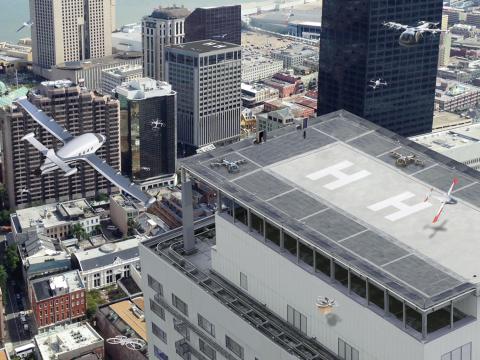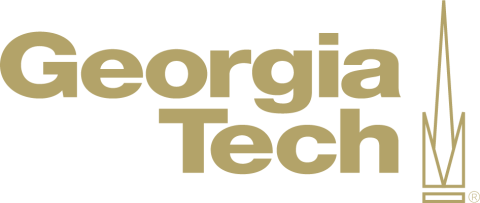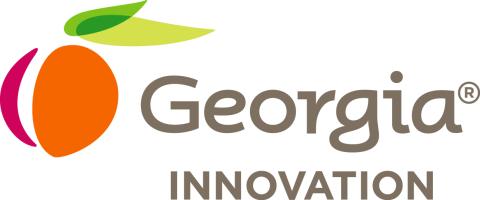event
Urban and Regional Air Mobility
Primary tabs
The world is now entering a new era of mobility. From electric scooters to self-driving cars, we will soon have even more choices for how to travel within cities. The same technologies that are enabling new forms of ground transportation are also enabling new types of aircraft. A new industry is emerging to address a market now being called “urban air mobility (UAM)” in which passengers and cargo are transported by short-ranged electric vertical takeoff and landing (eVTOL) aircraft at an affordable price point. As cities become more congested, UAM offers the potential for significant time savings compared to driving by overflying traffic. As one of many mobility options, UAM also will enable new levels of flexibility in multi-modal trips involving cars and transit. A recent market study by Booz Allen Hamilton found that if experts can overcome infrastructure and air traffic management constraints, the potential U.S. market for UAM exceeds $500 billion, carrying 16 million passengers daily, and served by 850,000 aircraft. In comparison, the U.S. airline market is approximately $200 billion.
Unlike past forms of aviation, UAM will be deeply interwoven into the fabric of cities and regions. Aircraft must be low noise to avoid annoyance, vertiports must be located in a way consistent with land use regulations, and issues such as equity of access must be addressed. As a consumer and producer of data, UAM will be a part of the landscape of future smart cities.
In this workshop, we will collectively address the question, “How can Atlanta and all of Georgia participate in the economic opportunity of UAM?” A premise of our discussion will be that the aircraft and technologies that enable UAM offer potential not only for urban operations but also for rural areas; hence our focus will be on urban and regional air mobility. For example, rapid commuting by air may enable increased wages for rural residents and also encourage rural growth and development, as people and businesses disaggregate from urban cores to outlying areas. Attendees will include business, government, and academic stakeholders from Atlanta and neighboring rural communities in Georgia, as well as representatives from NASA and companies participating in the nascent UAM industry.
Agenda:
8:00-8:30am - Registration
8:30-8:45am - Welcome and Introductions
Chaouki Abdallah, Executive Vice President of Research, Georgia Institute of Technology
8:45-9:00am - Georgia Tech’s Center for Urban and Regional Air Mobility (CURAM)
Brian German, Langley Associate Professor, Aerospace Engineering, Georgia Institute of Technology
9:00-9:45am - Keynote
Mark Moore, Director of Vehicle Systems, Uber Elevate
9:45-11:15am - Panel: Opportunities and challenges for urban and regional aviation
- Pam Cohn, Managing Partner, Ascension Global
- Nate Fisher, Avionics Software Verification and Validation Lead, KittyHawk
- Chris Hewlett, Program Leader, Global Drone Solutions, Deloitte
- Bruce Holmes, VP, Digital Aviation, SmartSky Networks
- John Selden, General Manager, Hartsfiled-Jackson International Airport
- Susan Ying, VP, Global Partnerships, Ampaire
- Amy Hudnall, Director, Georgia Center of Innovation for Aerospace (moderator)
11:15-11:30am - Networking Break
11:30-12:30pm - Panel: Atlanta perspectives on urban and regional aviation
- Anand Agarwal, Product Owner, Honeywell Aerospace
- Jim Allerdice, Founding Partner, ABCx2
- Carol Comer, Director, GDOT Intermodal Division
- Jesse Kallman, CEO, Airbus Aerial
- Gerald McDowell, Executive Director, Aerotropolis Atlanta CIDs
- Cynthia Curry, Director, IoT / AI / Smart Cities Ecosystem Expansion, Metro Atlanta Chamber (moderator)
12:30-1:15pm - Networking Lunch
1:15-1:30pm - Opportunities for Georgia
- Brian German, Langley Associate Professor, Aerospace Engineering, Georgia Institute of Technology
- Debra Lam, Managing Director, Smart Cities and Inclusive Innovation, Georgia Institute of Technology
- Laurie Garrow, Professor of Civil and Environmental Engineering, Georgia Institute of Technology
1:30-2:45pm - Breakout groups
2:45-3:00pm - Networking break
3:00 - 3:30pm - Groups Report Back
3:30-3:45pm - Closing and next steps
- Brian German, Langley Associate Professor, Aerospace Engineering, Georgia Institute of Technology
** A portion of the workshop will be livestreamed by Newsweek:
Keynote and Urban Air Mobility: Opportunities and Challenges for Urban and Regional Aviation (9 am - 11 am):
https://www.youtube.com/watch?v=gY-ZWwCFvnM
Workshop Organizers: Georgia Institute of Technology, Georgia Centers for Innovation, Georgia Chamber of Commerce, Metro Atlanta Chamber
Email questions to scii@ipat.gatech.edu.
Status
- Workflow status: Published
- Created by: Alyson Key
- Created: 11/27/2018
- Modified By: kk151
- Modified: 01/22/2019
Categories
Keywords
User Data
Target Audience






